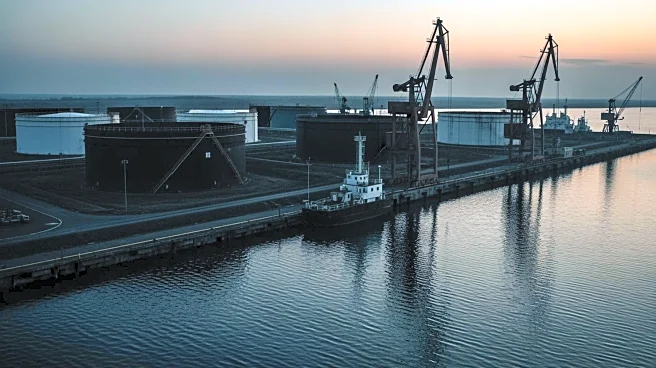What's Happening?
Russia's Novorossiysk port has suspended oil exports following a Ukrainian drone attack, affecting 2.2 million barrels per day, or 2% of global supply. This attack is one of the largest on Russian oil-exporting infrastructure in recent months, as Ukraine
intensifies its efforts to disrupt Moscow's financial resources. The incident has led to a significant increase in global oil prices, reflecting market concerns over supply stability. Ukrainian President Volodymyr Zelenskiy confirmed the use of long-range cruise missiles in recent strikes, although specific targets were not disclosed.
Why It's Important?
The temporary suspension of oil exports from Novorossiysk highlights the ongoing impact of geopolitical tensions on global energy markets. The disruption could lead to increased volatility in oil prices, affecting industries and economies reliant on stable energy supplies. The attack also underscores the strategic importance of energy infrastructure in conflict zones and the potential for further escalation in the region. As Western sanctions continue to pressure Russian oil companies, the market is closely watching for any shifts in trade flows and supply chain dynamics.
What's Next?
With the November 21 deadline for U.S. sanctions against Russian oil companies approaching, the industry is preparing for potential challenges in unloading cargoes. The market will be monitoring further Ukrainian attacks and their implications for global oil supply. Additionally, the response from Russian authorities and potential retaliatory measures could influence future developments in the region. Stakeholders are likely to assess the impact on energy security and explore alternative supply routes to mitigate risks.
Beyond the Headlines
The attack on Novorossiysk may have broader implications for international energy security and the geopolitical landscape. It raises questions about the resilience of critical infrastructure in conflict zones and the role of energy resources in diplomatic negotiations. The incident could prompt discussions on diversifying energy sources and enhancing security measures to protect vital supply routes.

















